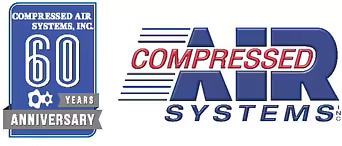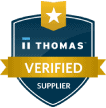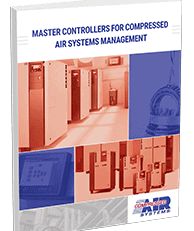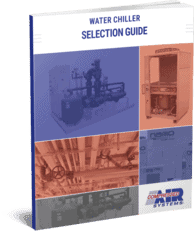Eliminating Compressed Air Leaks
Compressed Air Systems (CAS) is the leading expert in the detection, prevention, and elimination of compressed air leaks – one of the primary causes of wasted energy in industrial systems. A serious problem for manufacturers, air leaks can result in increased gas and electricity costs, system and critical component breakdowns, and drawn-out downtime for repairs.
There are two types of leaks: intentional and unintentional. Intentional leaks are purposefully created to allow compressed air to serve other functions throughout the facility, such as station cleaning, drying, equipment cooling, and even staff cooling.
Although these leaks are intentional, the air often ends up misused and ultimately wasted. In fact, many companies are surprised to learn that intentional leaks can be harmful, as not all workers understand the consequences of them.
Unintentional leaks are less obvious and can develop as a result of general wear and tear or maintenance issues over time. Since these leaks create energy-wasting and cost-accruing conditions, it’s up to employees to identify and eliminate them as early as possible.
How Do Compressed Air Leaks Affect Costs?
For any application requiring compressed air, leaks can create direct cost inefficiencies. Plants that don’t perform routine maintenance and service checks will likely operate at a 20% leak rate, with some systems wasting up to 20-30% of their output as a result.
In addition to wasting energy at the source, these leaks can cause a drop in overall system pressure and output, rendering some tools less effective and slowing down general production. The increased runtime then forces production units to work overtime to keep up with needs, diminishing their overall service life.
Many companies also add unnecessary compressor capacity to compensate for the pressure losses of compressed air leaks; often, this is because users do not understand that the issue can be remedied without purchasing additional equipment. If employees instead identified and stopped leaks at their source, however, companies would be able to make up for lost time, energy, and costs.
To better determine how leaks impact your bottom line, download our guide The Importance of Minimizing Compressed Air Leaks today.
Compressed Air Systems’ Air Leak Solutions
At Compressed Air Systems, we provide comprehensive on-site walkthroughs to check hose, tube and coupling fittings, condensate traps and shut-off valves, and pressure regulators for potential risks of leakage. Our team of compressed air experts works to locate existing leaks, estimate overall leakage, and create standards for future leak prevention.
Using ultrasonic leak detectors, our on-site team can quickly locate and eliminate leaks while systems are still in operation, thereby minimizing the negative effects of downtime for the customer. These state-of-the-art detection tools are capable of identifying leaks much faster and more effectively than other dated and labor-intensive methods, such as “soap and water” tests.
While leaks are most often found at joints and connections, our experts can use this sensitive equipment to identify less obvious leakage issues – such as those caused by improperly applied thread sealant – and can also pinpoint leaks in less frequently used equipment that doesn’t undergo regular valve shutdown.
Lastly, our field service team in Florida will work alongside your crew to develop comprehensive leak prevention programs for your facility, creating timetables that specify when to check and identify leaks, tracking metrics for ongoing problem areas, and establishing basic repair initiatives. We’ll proudly partner with your employees to encourage their involvement and awareness in compressed air systems leak detection and elimination.
Schedule a Complimentary System Analysis
Schedule a Florida on-site walk-through today to ensure your system is properly evaluated and primed for the highest-quality performance. For more information on leakage issues and how to prevent them, download our free guide, The Importance of Minimizing Compressed Air Leaks.









